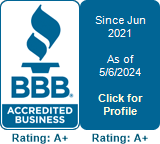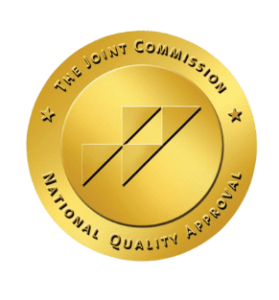You may be under the impression that it’s easy to spot an addict based on a few telltale signs, but in reality, anyone can struggle with addiction, no matter what they look like, what they wear, or how they act.
How Does Addiction Start?
The root causes of addiction look a little different for every person, but a few predominant patterns exist when it comes to why someone starts using drugs or alcohol and how regular use compounds into addiction.
After all, addiction doesn’t start with one use, and no one chooses to become addicted, but they do choose to continue abusing a substance. Yet plenty of people try drugs or alcohol without becoming addicted, so it often takes repeated use in combination with several other factors in order for addiction to start.
The reason why someone tries drugs or alcohol for the first time is often straightforward: these substances make us feel good for a short time, and we want to feel good. While society and people may assert that drugs and alcohol are harmful, peer pressure, curiosity, or the desire for relief from anxiety or trauma can easily outweigh those warnings.
After trying drugs or alcohol for the first time, a few risk factors increase the chances that someone will continue to use, including:
- Genetic predisposition or a family history of addiction
- Environmental exposure to drugs or alcohol at a young age
- Trying drugs or alcohol for the first time at a young age
- Chronic stress or anxiety
- Existing mental health issues
- Easy access to drugs or alcohol
The more of these factors at play, the more likely regular use is to compound into addiction. Before long, not only may someone become psychologically addicted to a substance if it becomes the predominant thing in their life that makes them feel good—they can also become physically dependent on the substance, making it even more challenging to break the cycle of addiction.
What Does an Addict Look Like?
Again, anyone can struggle with addiction, no matter what they look like. While we’re used to seeing the stereotypical image of an addict as someone with unkempt hair, dirty clothes, and erratic behavior, someone can display none of these characteristics and still struggle with addiction.
Sometimes, the last person you’d expect to struggle with addiction may be struggling with addiction right now. That’s why there is no easy way to categorize an addict based on appearance alone. Instead, it’s more accurate to identify addiction based on underlying lifestyle patterns, behaviors, and tendencies. (Our addiction quiz is designed to help you accomplish just that.)
Signs of Addiction
Signs of addiction vary based on the substance being abused:
- Signs of alcohol addiction
- Signs of heroin and opioid addiction
- Signs of prescription pill addiction
- Signs of cocaine addiction
- Signs of meth addiction
It’s important to remember that while these patterns can help you identify a possible addiction, they are not enough to confirm or deny that the issue is addiction. Only a team of substance abuse professionals should be trusted to verify the presence of addiction.
What Is It Like To Be Addicted to Drugs?
If you haven’t struggled with addiction, it can be challenging to understand the mindset of someone in the throes of addiction. But if you want to help someone with an addiction, you have to start by understanding what it’s like to be addicted to drugs or alcohol.
First, it’s important to remember that people often start using drugs or alcohol because they feel like something is missing from their lives or they need relief from some aspect of life. It could be uncertainty about the future, past trauma, emotional instability, or a difficult family life. A common pattern is that addiction often takes root in feelings of discomfort and dissatisfaction. It should be no surprise that individuals who are comfortable with their place in the world or happy with the life they lead are not as prone to addiction as those who aren’t.
Someone struggling with addiction may have a hard time enjoying life to the degree that those around them are. They try drugs or alcohol, and suddenly, they feel good about life. When that’s the only thing that makes them feel better, they continue to use drugs or alcohol, often feeding into addiction.
But over time, while the substance or substances they’re abusing may make them feel “good,” they may also begin to awaken to the reality that life isn’t actually improving—instead, it’s always almost the opposite—because they aren’t dealing with underlying problems at the root of their discontent.
It can take an addict years to come to this realization, and it’s useful to try and patiently understand where they’re coming from as you aim to help them.
The One Thing Almost All Addicts Have in Common
While anyone can struggle with addiction, there’s one trait we’ve found almost everyone dealing with addiction has in common: secrecy.
Most people with an alcohol or substance addiction try to hide the reality of the situation from their loved ones for as long as possible. If nobody finds out about the addiction, they won’t be challenged to change or forced to confront the fact that they may have a problem.
Whether it’s dishonesty about where they’ve been or trying to hide where their money is going, people struggling with addiction often go out of the way to cover up the warning signs.
How Can You Help an Addict?
When someone you care about is struggling with addiction, it’s natural to want to help them and, of course, feel the need to reach out for help and guidance in your efforts. However, it’s also good to keep the old trope in mind here: You can only help someone as much as they want to be helped. While their addiction may be causing you to suffer, you have to remember that they’re also suffering.
As you strive to help them, you can:
Take the Time To Listen Without Judgement
Connection is one of the best remedies for addiction, and knowing they have someone who genuinely listens to them is one of the easiest ways to build a connection.
Recognizing the Connection Between Addiction and Struggles
Though an addict may wish it so, drugs and alcohol aren’t solving any of their problems. Instead, they often create new ones. If you can slowly help them come to this realization, they’ll be more likely to reach out for help when they’re ready.
Build a Support Team
Very few people overcome addiction on their own, and nobody can achieve long-term sobriety without a support system. Build a team of supportive, positive individuals who can help the person you care about cultivate a meaningful, fulfilling life without the need for drugs or alcohol. It’s also important to recognize that not everybody should be a part of that team. People who are struggling with their own addiction or promote enabling behavior shouldn’t be a part of that support team.
Prepare for Setbacks and Relapse
Addiction is a lifelong disease, and the struggle never really ends. When recovering from addiction, relapse is common, but it’s important not to be discouraged. An individual may have to relapse several times to develop the awareness, experience, and insight they need to not only desire sobriety today but also sustain it for tomorrow. When you aren’t discouraged in the face of setbacks, the person you care about will feel more confident.
How Can ALYST Help?
As we mentioned above, one of the best ways to help an addict is by building a support network around the individual struggling with alcohol or substance use. While family members and close friends are a great place to start, you also need a team of professionals with the experience and skills to help individuals achieve long-term sobriety—you need people who have been there before and are committed to helping as many people as possible.
At ALYST Health, we take a unique approach to treating addiction. We move the point of care to the place where people feel comfortable and safe: their own home. Our approach not only gives participants unparalleled personalization and privacy—it also enables them to learn the skills and tools they need to achieve sobriety even after they complete treatment. And our support team remains on the sidelines for as long as we’re needed, even after formal treatment is complete.






